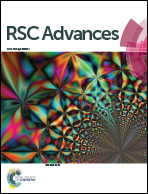Antibacterial activity of Litsea cubeba essential oil and its mechanism against Botrytis cinerea
Abstract
Litsea cubeba essential oil (LCEO) extracted from the fruit of the Litsea tree is a broad-spectrum bacteriostatic agent that has been used to treat ailments for thousands of years in China. The objective of our study was to assess the inhibitory effect of LCEO on Botrytis cinerea, a fungus that causes the putrification of fruits and vegetables. After being treated with 1.0% LCEO, the electrical conductivity of the fungal cells increased, and the contents of soluble reducing sugars and proteins slowly increased over treatment time. After being treated for 48 h with 1.0% LCEO, scanning electron microscopy (SEM) and transmission electron microscopy (TEM) images clearly showed damage to hyphae cells when compared with the normal growth of the control groups. Additional studies showed that the ergosterol content in the cell membrane significantly decreased with an increase in the LCEO concentration, and the electrophoretic bands of the proteins assayed using the sodium dodecyl sulfate-polyacrylamide gel electrophoresis method significantly changed at different LCEO concentrations. LCEO damaged the cell membrane and changed the cell membrane permeability, leading to the changes in some components in the cytoplasm, such as soluble reducing sugars, proteins, and ergosterol. In general, the antimicrobial activity of LCEO is attributable to a unique pathway and involves a series of events both on the surface and within the cytoplasm of the fungal cell.



 Please wait while we load your content...
Please wait while we load your content...